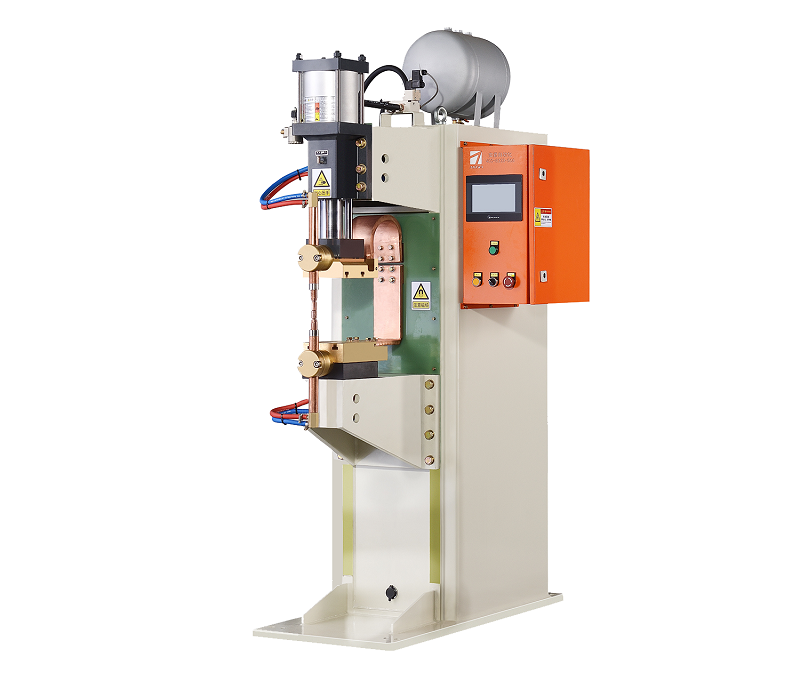The integrated circuit (IC) controller is a key component in medium frequency inverter spot welding machines, providing precise control and advanced functionalities. This article discusses the characteristics and advantages of the IC controller, highlighting its role in enhancing welding performance and operational efficiency.

- Advanced Control Capabilities: a. Precise Parameter Control: The IC controller offers high-precision control over welding parameters such as current, voltage, and time. This enables accurate and consistent weld quality, ensuring adherence to specified standards. b. Adaptive Control Algorithms: The IC controller utilizes advanced algorithms to adaptively adjust the welding parameters based on real-time feedback from sensors. This dynamic control ensures optimal performance and compensates for variations in materials, joint geometries, and process conditions. c. Multi-Functionality: The IC controller integrates multiple control functions, including waveform generation, current feedback regulation, pulse shaping, and fault detection. This consolidation of functionalities simplifies the overall control system architecture and enhances operational flexibility.
- Intelligent Monitoring and Diagnostics: a. Real-time Data Acquisition: The IC controller collects and analyzes data from various sensors, monitoring critical parameters such as current, voltage, and temperature during the welding process. This real-time data acquisition enables precise process monitoring and facilitates performance analysis. b. Fault Detection and Diagnosis: The IC controller incorporates intelligent algorithms for fault detection and diagnosis. It can identify abnormal conditions, such as short circuits, open circuits, or electrode misalignment, and trigger appropriate actions, such as system shutdown or error notifications. This proactive approach ensures operational safety and minimizes downtime.
- User-friendly Interface and Connectivity: a. Intuitive User Interface: The IC controller features a user-friendly interface that allows operators to easily configure welding parameters, monitor process status, and access diagnostic information. This enhances operator convenience and facilitates efficient operation. b. Connectivity Options: The IC controller supports various communication interfaces, enabling seamless integration with external systems, such as supervisory control and data acquisition (SCADA) systems or factory automation networks. This connectivity enhances data exchange, remote monitoring, and centralized control capabilities.
- Reliability and Robustness: a. High-Quality Manufacturing: The IC controller undergoes rigorous manufacturing processes, including stringent quality control and testing, to ensure its reliability and durability in demanding welding environments. b. Temperature and Environmental Protection: The IC controller incorporates thermal management techniques and protective measures against dust, moisture, and vibration. These features enhance its resistance to adverse operating conditions and extend its lifespan.
The integrated circuit (IC) controller in medium frequency inverter spot welding machines offers advanced control capabilities, intelligent monitoring, user-friendly interfaces, and robustness. Its precise parameter control, adaptive algorithms, and fault detection mechanisms contribute to enhanced welding performance and operational efficiency. The IC controller’s reliability, connectivity options, and intuitive interface empower operators with efficient control and monitoring capabilities. Manufacturers can rely on the IC controller to achieve high-quality welds, optimize productivity, and ensure a seamless integration of welding processes into larger manufacturing systems.
Post time: May-23-2023


